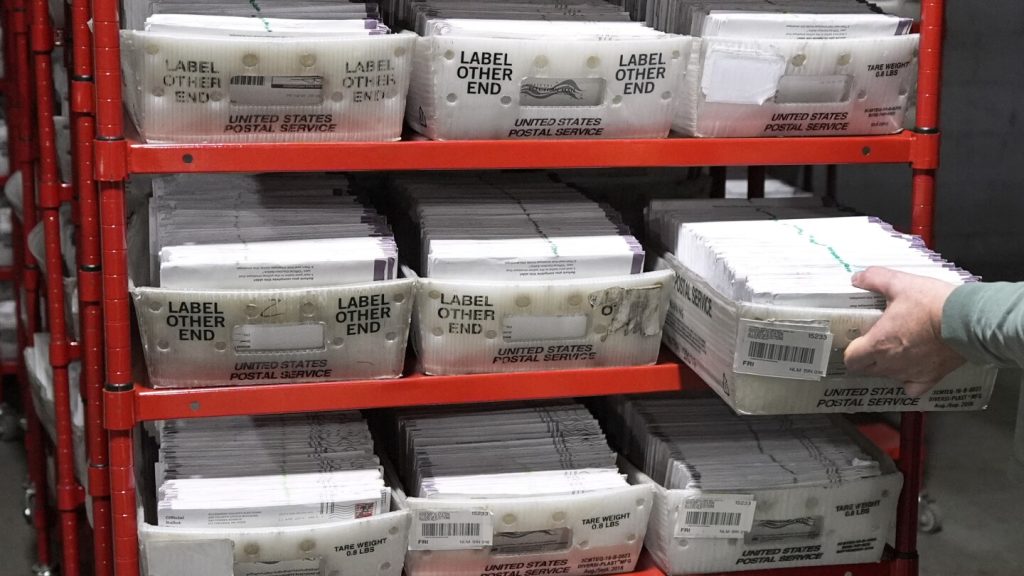A judge ruled that Washington County in Pennsylvania violated state law by not informing voters when their mail-in ballots were rejected and wouldn’t be counted in the primary election. The decision stemmed from a lawsuit filed by the NAACP branch in Washington, Pennsylvania, and seven voters whose ballots were rejected. The judge ordered the county to notify voters of rejected ballots and give them a chance to challenge the decision or cast a provisional ballot. This decision comes amidst a number of election-related lawsuits being fought in Pennsylvania’s courts, in anticipation of a closely contested presidential election between Donald Trump and Kamala Harris.
The judge’s ruling directly impacts Washington County’s handling of mail-in ballots, particularly in cases where errors such as missing signatures or dates led to rejection of the ballots. By ordering the county to notify voters of rejected ballots and allow them to cast provisional ballots, the judge is seeking to ensure that voters can exercise their legal rights and have their votes counted. In the primary election, the county rejected 259 mail-in ballots, representing 2% of all mail-in ballots received on time. This decision could have significant implications in a state where mail-in voting has been a subject of contention.
The chairman of Washington County’s commissioners, Nick Sherman, expressed uncertainty about appealing the decision, but maintained that the county’s practices are compliant with state law. He criticized the judge’s ruling as an example of “legislating from the bench,” suggesting that the judge’s political affiliation as a Democrat may have influenced the decision. Despite Sherman’s belief that state law prohibits processing mail-in ballots before Election Day, the ACLU of Pennsylvania argued that counties can identify errors in mail-in ballots upon receipt and inform voters promptly. The dispute highlights the complexities and controversies surrounding mail-in voting procedures.
The issue of informing voters about rejected mail-in ballots has raised concerns about voter disenfranchisement and a lack of transparency in the electoral process. Advocates for voting rights argue that voters deserve to know whether their vote has been counted and have the opportunity to address any issues with their ballot. The ruling in Washington County sets a precedent for ensuring greater accountability and accessibility in the handling of mail-in ballots, particularly during a highly anticipated election season. As legal battles over election procedures continue to unfold in Pennsylvania and beyond, the outcome of these cases could shape the integrity and fairness of the electoral process.
The ruling in Washington County underscores the importance of upholding election laws and ensuring that voters are provided with the information and resources necessary to participate in the democratic process. By requiring the county to notify voters of rejected mail-in ballots and offer them alternatives to cast a valid ballot, the judge’s decision aims to safeguard the rights of voters and promote transparency in election administration. As the nation prepares for a pivotal presidential election, the handling of mail-in voting procedures and the enforcement of election laws will play a crucial role in determining the outcome and upholding the principles of democracy. It remains to be seen how this ruling will influence the broader debate over election integrity and voter access in Pennsylvania and across the country.


